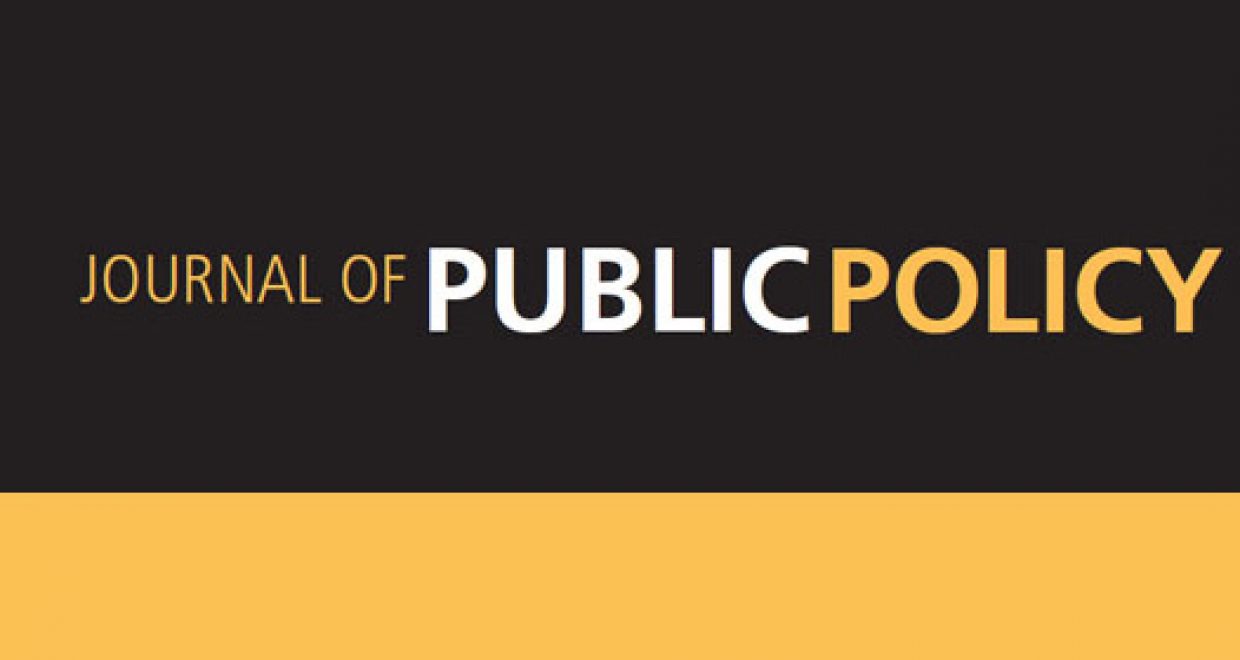Why international standards are (sometimes) not set: the case of shadow banking
International standards have proliferated in many policy areas over recent decades and are a key feature of global governance. Standard-setting is particularly consequential in finance given its global reach and systemic implications for the economy. Yet, we know relatively little about failed or negative cases of standard setting in finance – that is, cases of non-agreement and issues that are largely absent from the agenda of global regulatory bodies active in this field. We explain weak and negative cases of international standard-setting (henceforth, we just refer to ‘weak’ cases for simplicity) by considering the ‘most likely’ cases of international regulation – namely, financial entities and activities that have systemic implications for financial stability, generate significant cross-border externalities, and create opportunities for international regulatory arbitrage. The cases we examine are all in the area of ‘shadow banking’ to minimise sources of sectoral variation.
Shadow banking refers to the system of non-bank financial intermediation or market-based finance, and typically includes a range of entities (such as hedge funds and money market funds) and activities (like securitisation and repo markets). The sector played a significant role in the building up and amplification of the 2008 Great Financial Crisis and came under increasing regulatory scrutiny in response to the rapid expansion of the sector after 2008. In recent years, there have been renewed financial stability concerns regarding shadow banking during the Covid-19 pandemic and the economic recession triggered by the pandemic.
We first construct a typology of distinct types of weak international standards: I) absent standards, whereby there is only minimal discussion of certain issues and no substantive proposals are tabled; II) non-agreed standards, in which detailed rules are proposed, but eventually not agreed; III) symbolic standards, whereby only minimalist rules with a low level of precision and stringency are issued; and IV) agreed standards with a relatively high level of precision and stringency. Nonetheless, even in this positive case, standards are not necessarily stable. On the contrary, new sources of conflict could lead to standards being weakened (type III) or abandoned (type II).
We then combine an inter-state explanation, which focuses on competition between major jurisdictions, with a transgovernmental explanation, which relates to conflict between different regulatory bodies at the international level. We also consider how these dimensions create conditions for and interact with financial industry lobbying. Our framework integrates the above variables – inter-state and transgovernmental conflicts, and their interaction with financial lobbying – into a two-by-two matrix to systematically account for different types of weak cases of international standard setting in finance (see Table 1). The explanatory leverage of our typology is illustrated by examining four post-crisis cases in shadow banking.
Table 1. An explanatory typology for weak international standards in finance
| International standard-setting bodies Disagree Agree | ||
| Main jurisdictions Disagree Agree | I. Absent standards Inter-state conflict due to asymmetric externalities and adjustment costs Transgovernmental conflict due to clashing mandates, competences or ideas | III. Symbolic standards Inter-state conflict due to asymmetric externalities and adjustment costs Transgovernmental agreement due to aligned mandates, competences or ideas |
| II. Non-agreed standards Inter-state agreement due to symmetric externalities and adjustment costs. Transgovernmental conflict due to clashing mandates, competences or ideas | IV Agreed standards Inter-state agreement due to symmetric externalities and adjustment costs. Transgovernmental agreement due to aligned mandates, competences or ideas | |
Type I – absent standards: ‘bigtech’ financial services
The first type of weak case concerns the absence of international rules, due to limited discussion and failure to develop detailed proposals in global standard-setting bodies (Type 1). An important example relates to the provision of financial services by ‘bigtech’ firms – that is, large companies that provide digital services – such as e-commerce, social media, and telecommunications – via digital platforms.
The possibility of agreeing international standards on bigtech finance is severely limited by inter-state conflict, rooted in the competing interests and divergent regulatory regimes of the main jurisdictions, namely the United States (US), the European Union (EU) and China. These divisions are compounded by transgovernmental conflicts between different regulatory bodies at the international level. These bodies, namely, the Basel Committee on Banking Supervision (BCBS), the International Organisation of Securities Commissions (IOSCO), the Committee on Payment and Market Infrastructure (CPMI), have divergent mandates, objectives and regulatory approaches with respect to bigtech finance, including prudential issues (BCBS), investor protection (IOSCO), and market infrastructure (CPMI). The Financial Stability Board (FSB) tries to act in a coordinating role, but is often constrained by disagreements between central bankers concerned with upholding prudential rules, and finance ministers more sensitive to growth and competitiveness. These fault lines are compounded by the involvement of a range of other regulatory agencies – notably those concerned with data privacy, telecoms infrastructure, and cybersecurity – which generate new obstacles to international coordination. Inter-state and transgovernmental conflicts have been widely exploited by the financial industry to push back against regulation, resulting in the absence of international standards.
Type II – non-agreed standards: systemically-important shadow banks
Our second type of weak case relates to international standards that are proposed and negotiated, but not agreed upon (Type II). We illustrate this by examining the fate of global rules concerning global systemically-important financial institutions (henceforth ‘G-SIFIs’), including shadow banks.
On the one hand, there was significant inter-state agreement as the interests of the US and UK, supported by the EU, favoured the development of new international standards in this area. On the other hand, the work of the relevant international standard-setting bodies in finance, the FSB and IOSCO, was hampered by transgovernmental conflict. Whereas prudential regulators in the FSB feared that large investment funds could pose similar systemic risks to global banks, securities market regulators in IOSCO were less concerned about the systemic risk and argued that investment funds were very different from banks. Transgovernmental conflict was compounded by industry lobbying: investment funds engaged in a concerted push to prevent rules that would label them as systemically important, mounting ferocious lobbying. Eventually, the FSB and IOSCO decided to postpone the finalization of international standards for G-SIFIs.
Type III – symbolic standards: money market funds
An example of symbolic international standards (Type III) – arising from inter-state conflict with transgovernmental agreement – concerns the regulation of money market funds (MMFs). There was significant inter-state disagreement over the desirability and design of international standards on MMFs because the adjustment costs to new international rules would predominantly fall upon the jurisdictions, such as the US and China, that had a large MMFs sector, while externalities linked to the activities of MMFs involved third countries, notably the EU. The inter-state conflict was frequently leveraged by vocal industry groups urging policy makers to defend the competitiveness of the sector. Hence, broad agreement amongst securities regulators in IOSCO was ultimately insufficient to overcome inter-state conflict and MMF industry lobbying, resulting in largely symbolic IOSCO standards, which lacked both precision and stringency.
Type IV – agreed standards: bank exposure to securitisation
International standards related to bank exposure to shadow banking, specifically, to securitisation, demonstrate the importance of inter-state and transgovernmental agreement for the development of new global rules characterised by high precision and stringency (Type IV). In fact, in 2014, the Basel III accord on bank capital requirements, which had been agreed in 2010, was supplemented by a revised framework for securitization that substantially increased bank capital requirements on securitised products held by banks.
The setting of these international standards was possible because transgovernmental and inter-state conflict was minimal, thereby reducing the effectiveness of industry lobbying. On the one hand, banking regulators took the lead in setting bank capital rules, including those for securitization, which limited the possibility of bureaucratic turf wars or regulatory clashes. On the other hand, the relatively even distribution of banking activity across the two main jurisdictions (US and EU) served to ameliorate sources of potential inter-state rivalry as this meant cross-border externalities and adjustment costs would be broadly symmetric. This also meant that there was little scope for organised financial interests to exploit either regulatory or political divisions.
Table 2. Applying the analytical framework to the case of shadow banking
| International standard-setting bodies (BCBS, FSB, IOSCO, CPMI) Disagree Agree | ||
| Main jurisdictions (US, EU, China) Disagree Agree | I. Absent standards Bigtech financial services Inter-state conflict due to asymmetric externalities/adjustment costs Transgovernmental conflict due to fragmentation and divergence of regulatory bodies | III. Symbolic standards Money market funds Inter-state conflict due to asymmetric externalities/adjustment costs (including within EU) Transgovernmental agreement among securities regulators in IOSCO. |
| II. Non-agreed standards Systemically-important shadow banks Inter-state agreement due to symmetric externalities/adjustment costs Transgovernmental conflict between prudential and securities regulators | IV. Agreed standards Bank exposure to securitisation Inter-state agreement due to symmetric externalities/adjustment costs Transgovernmental agreement among banking regulators in BCBS | |
Conclusion
Our research investigates weak or negative cases where international standards in finance are either perfunctory or non-existent, integrating an inter-state explanation, which focuses on conflicts between major jurisdictions, with a transgovernmental explanation, which examines conflicts between different regulatory bodies at the international level. We also consider how these dimensions create conditions for and interact with financial industry lobbying. Weak international rules in finance are consequential as they reduce the resilience of the financial system, especially its ability to withstand economic and financial shocks, thus increasing financial instability.
Furthermore, our typology and our explanation can potentially be extended to other regulatory areas beyond finance. Indeed, we can foresee the primary explanatory variables – i.e. inter-state and transgovernmental conflict – being used to explain absent or weak standards in fields as diverse as data privacy, environmental protection, pharmaceuticals and public health, which constitute interesting venues for further research.
– Scott James (King’s College London) and Lucia Quaglia (University of Bologna)
– The authors’ accompanying paper in the Journal of Public Policy is available open access.






